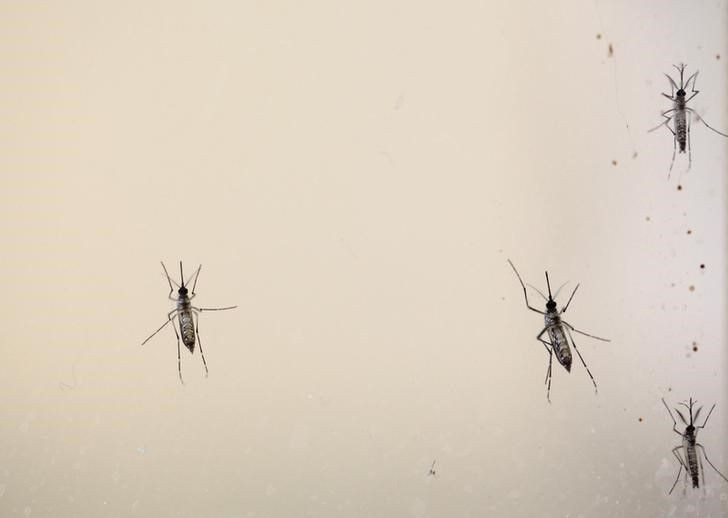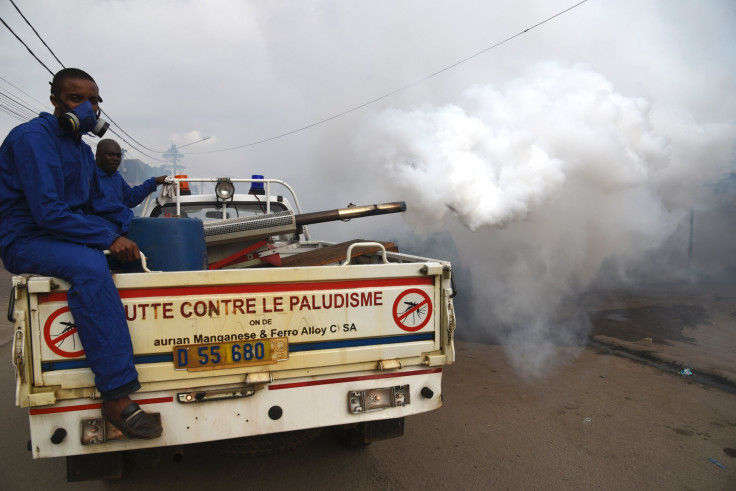Is There A Cure For Zika? Everything You Need To Know About The Mosquito-Borne Disease

Zika virus disease is caused by a virus transmitted primarily by Aedes mosquitoes, which are also responsible for the transmission of dengue and chikungunya viruses. Researchers have been conducting several studies to get closer to an effective vaccine for the Zika virus that can help curb its spread across the U.S. and around the globe.
The World Health Organization declared the mosquito-borne disease, which has spread across Latin American and Caribbean nations, an international health emergency on Feb. 1. Zika, which was previously known to cause only moderate cold and flu-like symptoms, is now causing multiple neurological disorders, as well as microcephaly in babies. Microcephaly is a condition that causes babies to be born with abnormally small heads.
Earlier this month, scientists said three separate formulations can protect monkeys from Zika. Tests conducted on 16 individuals showed all three experimental vaccines offered complete protection against Zika infection one month later. However, it was unclear how long the protection would last.
“We don’t want to overstate it, but we hope for protection that is long-lasting,” Dan Barouch, who co-led the studies at Beth Israel Deaconess Medical Center in Boston, said. “Ideally we’d have protection induced by a single shot vaccine or a two shot vaccine and for that to last for years.”
The results suggested the virus could be repelled by even the monkeys’ low levels of immunity, giving rise to confidence that a viable vaccine for humans could be developed soon. Of the three vaccines tested by Barouch and others, the most conventional and ready for development is a whole, dead Zika virus, which is being pursued at the Walter Reed Army Institute of Research in Maryland.
The other two vaccines are more novel. One is a single and harmless Zika virus gene that is stitched into a loop of DNA. When injected into the body, cells take up the DNA loop and from it, produce Zika proteins that trigger an immune response against them.
The third vaccine adds the Zika virus gene to a harmless adenovirus, which behaves like a Trojan horse and smuggles the DNA into cells, which then produce antibodies to wipe out the whole virus.
“Our data encourage the development of these vaccines in clinical trials as quickly as possible,” Barouch said.
Gavin Screaton, an immunologist at Imperial College London, said the results were “positive early steps,” but whether the vaccines will work in humans and offer long term protection against Zika must still be determined. “A human response will need to last years to be useful,” he said.
Zika virus, which was first identified in 1947 in a rhesus monkey in Uganda, was initially detected in humans in 1952. It is primarily transmitted by mosquitoes — specifically, mosquitoes from the Aedes genus, which also transmit yellow fever, dengue and chikungunya, and there is no vaccine or medicine for it so far. Aedes mosquitoes usually bite during the day, peaking during early morning and late afternoon/evening. Sexual transmission of Zika virus is also possible. Other modes of transmission such as blood transfusion are currently being investigated.

A new research published in The BMJ last week revealed that health consequences of the Zika virus for infected newborns may extend past the brain.
“This disease goes beyond microcephaly, with other symptoms such as visual and hearing impairment, and unusual signs and symptoms different from other congenital infections,” the authors wrote, adding that microcephaly and other Zika-caused impairments should be seen as part of a broader congenital Zika syndrome.
Here are a few facts about Zika:
The viral infections typically occur in tropical climates.
Symptoms of the virus are mild and last anywhere from two days to a week. They include fever, skin rashes, conjunctivitis (red eyes), muscle and joint pain, headache and malaise. Infections like dengue can also be a precursor to Zika.
A blood and urine test can confirm infection, according to the Centers for Disease Control and Prevention (CDC).
The majority of infected people do not display any symptoms.
Those diagnosed with Zika should get rest, drink fluids, take medication to reduce pain and fever symptoms, and avoid aspirin and non-steroidal anti-inflammatory drugs, according to CDC.
It is rare for people to die from a Zika infection.
The CDC says it is “likely” that an individual is protected from future infections once they have been infected by Zika.
At present, there is no treatment or cure for the virus.



























